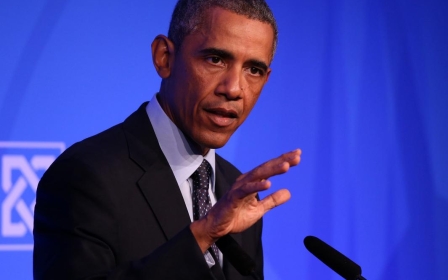Jordanian MPs reject buying 'stolen Palestinian gas' from Israel

After a heated two-day discussion, the vast majority of Jordanian Parliament members voted on Wednesday for a non-binding motion rejecting the government’s recent decision to buy natural gas from Israel’s offshore Leviathan reservoir.
Starting Tuesday morning – under the dome of parliament - an estimated 92 MPs called on the government to cancel the gas deal, with some describing it as “stolen Palestinian gas” in three-minute speeches.
Others warned the government about the consequences of “confining Jordanians under the mercy of Israel” for 15 years.
“Our Arab and Islamic ethics do not allow us to approve of buying the gas, which was stolen from them [Palestinians],” said Yahya Saud, a strong opponent of the deal, during the discussion.
In September, the Jordanian government signed a letter of intent with US Company Noble Energy to purchase 1.6 trillion cubic feet of Israeli gas. Sources familiar with the deal have said the contract is worth between $14bn and $15bn.
Activists sat on the balconies overlooking parliament wearing badges saying “Gas [from] the enemy [is] occupation”. Most activists refused to speak to media saying they were there just to listen.
Speaking on behalf of Jordanians who they represent, some MPs warned that signing the deal will cost them their credibility.
“[Respecting] the dignity of the Jordanian people means that this deal is not signed. What do we tell [the] Jordanian people?” said MP Jamal Gamouh, head of the parliamentary energy committee, referring to a petition signed by 8,000 Jordanians rejecting the deal.
Parliamentarians handed the petition to Prime Minister Abdullah Ensour after the session concluded on Wednesday afternoon.
Unlike the government’s claim that the deal is an issue of “economics”, some MPs voiced their concern that the deal is politically motivated and initiated by the United States.
“This deal was passed during the vicious attacks on the people of Gaza and was strongly supported by the US to serve its strategic goals in the Middle East,” said Deputy Mohammad Hudaeeb.
Jordananian and Israeli relations are the worst they have been since Amman signed the peace treaty 20 years ago. Jordan’s ambassador still has not returned back to Israel after he was recalled last month in protest against attacks on al-Aqsa Mosque in Jerusalem.
“Instead of closing the embassy of Israel and declaring the ambassador persona non-grata after all the violations, our government expects Jordanians to accept a big project aimed at strengthening ties with the Zionist enemy,” said Deputy Ali Sunaid, in reference to the recent diplomatic tension between Jordan and Israel.
Around 15 MPs spoke in favour of the gas deal, citing the economic factor as a reason.
“I am in favour of importing gas from Satan if it serves our country’s interest, security and stability,” said Deputy Bassam Manaseer.
Jordanian officials have hailed the 15-year deal as an answer to the country’s energy problems. They have said it will save the country $992mn annually and reduce losses at the National Electric Power Company (NEPCO), which are expected to reach $1.8bn by the end of 2014.
Citing a high government budget deficit, MP Ali Khalialah said he was in favour of the signing the deal but only for one year.
“We should keep in mind that we have economic challenges away from politics. We have a strong budget deficit due to the cumulating energy bill.”
As “the Palestinian Authority recognizes Israel as a state” Deputy Rida Haddad asked his fellow MPs “why should Jordan be forbidden from dealing with Israel?”
In response to comments by MPs, Prime Minister Ensour said the decision is has been made by Jordanians alone and denied accusations the government is influenced by other countries.
“We were not given orders by anyone...we are not traitors for anyone,” Ensour said addressing MPs on Wednesday afternoon.
“In this cabinet, we are responsible for meeting the needs of the Jordanian people in the best and safest way,” he added.
In response to suggestions by deputies that partnering with Arab countries like Qatar could be an alternative, Ensour said his government “would have welcomed a deal with Qatar if they gave the same prices as Israel.”
“Jordan is playing its role and the role of other Arab countries towards what is happening in Palestine, Syria, Iraq,” Ensour said in reference to the financial challenges his country have endured in recent years due to regional turmoil.
The prime minister said Algeria had been sounded out as an alternative place to source energy but “there was no gas to buy” there.
Gas is due to begin flowing from Israel to Jordan in 2017. It will be pumped from the Leviathan gas field, off the coast of Israel’s third largest city Haifa, by the US-based company Noble Energy who own almost 40 percent of reserves there.
Stay informed with MEE's newsletters
Sign up to get the latest alerts, insights and analysis, starting with Turkey Unpacked
Middle East Eye delivers independent and unrivalled coverage and analysis of the Middle East, North Africa and beyond. To learn more about republishing this content and the associated fees, please fill out this form. More about MEE can be found here.




